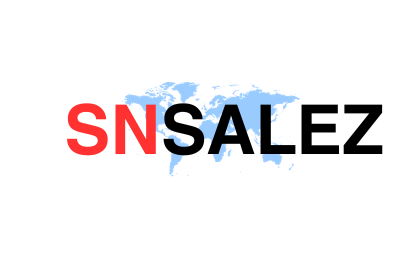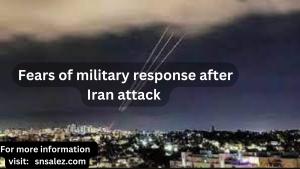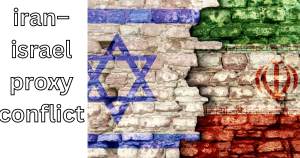Ramadan, the ninth month of the Islamic lunar calendar, is a sacred time for Muslims worldwide. During this month, Muslims observe fasting from dawn until sunset, engage in increased prayer and reflection, and focus on charitable acts. As Ramadan approaches, it becomes customary to extend warm wishes to friends, family, and acquaintances. Understanding the significance of wishing a Happy Ramadan and employing the appropriate etiquette ensures that these messages are respectful and meaningful.
Introduction to Ramadan
Ramadan holds great spiritual significance for Muslims. It commemorates the month in which the Quran, the holy book of Islam, was revealed to Prophet Muhammad. Fasting during Ramadan is considered one of the Five Pillars of Islam, an essential act of worship.
Importance of Wishing Happy Ramadan
Wishing someone a Happy Ramadan is more than just a customary greeting; it signifies respect, goodwill, and empathy towards those observing the holy month. It fosters a sense of community and solidarity among Muslims and non-Muslims alike.
Cultural Significance of Wishing Happy Ramadan
In many cultures, exchanging Ramadan greetings is a cherished tradition that promotes harmony and understanding. It reflects the values of compassion, generosity, and inclusivity upheld during this auspicious time.
Tips for Wishing a Happy Ramadan
Understanding the Significance
Before extending wishes, it’s essential to understand the significance of Ramadan and its practices. This demonstrates sincerity and respect for the beliefs and customs of others.
Respectful Language
When crafting Ramadan greetings, use respectful language that acknowledges the solemnity of the occasion. Avoid casual or insensitive remarks that may unintentionally offend.
Personalized Messages
Tailor your wishes to the individual or community you are addressing. Personalized messages convey thoughtfulness and consideration, strengthening interpersonal connections.
Ways to Wish Happy Ramadan

Traditional Greetings
Traditional Ramadan greetings include “Ramadan Mubarak” (Blessed Ramadan) and “Ramadan Kareem” (Generous Ramadan). These phrases encapsulate the spirit of the month and are widely recognized and appreciated.
Modern Approaches
In addition to traditional greetings, modern approaches such as sending e-cards, sharing social media posts, or hosting virtual gatherings allow for creative expressions of goodwill during Ramadan.
Examples of Happy Ramadan Wishes
Whether extending formal or informal wishes, sincerity and empathy should be at the forefront of your message. Here are some examples:
Formal Wishes
- “Wishing you and your family a blessed Ramadan filled with peace, joy, and spiritual growth.”
- “May this Ramadan bring you closer to Allah’s blessings and illuminate your path with guidance and grace.”
Informal Wishes
- “Ramadan Mubarak! May your fasting be easy, your prayers be accepted, and your heart be filled with peace.”
- “Wishing you a joyful Ramadan surrounded by loved ones, good food, and cherished memories.”
How to Extend Wishes to Different Audiences
When extending Ramadan wishes, consider the nature of your relationship with the recipient and adjust your message accordingly.
Friends and Family
With loved ones, you can express warmth and familiarity in your wishes, emphasizing the bond you share and your support for their spiritual journey.
Colleagues and Acquaintances
In professional settings or with acquaintances, maintain a respectful tone while acknowledging the significance of Ramadan. Keep messages concise and inclusive.
Social Media Platforms
On social media, share uplifting messages, inspirational quotes, or personal reflections to engage with a broader audience and foster a sense of community.
Common Mistakes to Avoid When Wishing a Happy Ramadan
- Assuming Everyone Observes Ramadan: Be mindful that not everyone celebrates Ramadan, so avoid making assumptions about someone’s religious beliefs or practices.
- Using Inappropriate Language: Avoid using language or images that may be culturally insensitive or offensive.
- Forgetting the Purpose: Remember that Ramadan is a time for spiritual reflection and self-discipline, so avoid trivializing its significance.

Wishing a Happy Ramadan is a meaningful gesture that promotes goodwill, understanding, and unity. By embracing the cultural significance of Ramadan and employing respectful language and personalized messages, we can foster deeper connections and celebrate the spirit of compassion and generosity that defines this sacred month.

- Why is it important to wish someone a Happy Ramadan?
Wishing someone a Happy Ramadan shows respect and empathy towards their beliefs and traditions, fostering a sense of community and inclusivity. - What are some traditional Ramadan greetings?
Traditional Ramadan greetings include “Ramadan Mubarak” (Blessed Ramadan) and “Ramadan Kareem” (Generous Ramadan). - How can I extend Ramadan wishes to non-Muslim friends or colleagues?
You can extend Ramadan wishes to non-Muslims by expressing goodwill and acknowledging the significance of the month without imposing religious beliefs. - What should I avoid when wishing someone a Happy Ramadan?
Avoid making assumptions about someone’s religious practices, using inappropriate language or imagery, and trivializing the significance of Ramadan. - Can I wish someone a Happy Ramadan if I am not Muslim?
Yes, extending warm wishes during Ramadan is a gesture of goodwill and inclusivity appreciated by people of all faiths.




